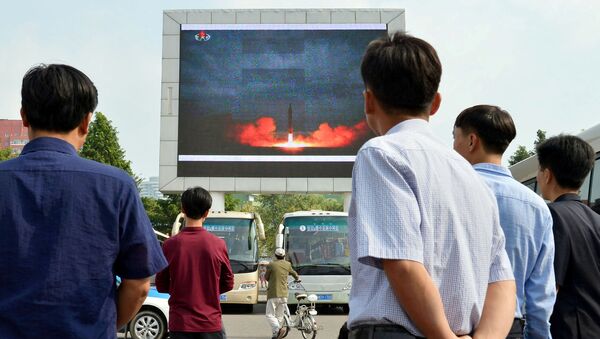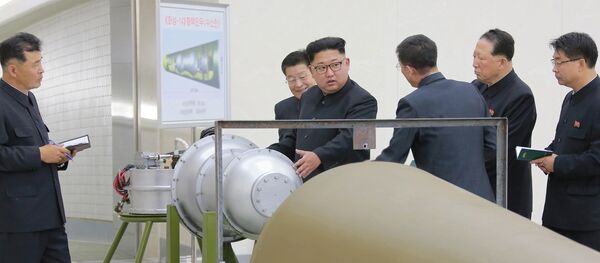In both August and September, North Korea undertook daring and provocative tests by launching their Hwasong-12 intermediate-range ballistic missile over northern Japan. This was the first time ever that a North Korean missile test passed over Japan, and many took it as a sign that the ongoing stand-off in the Korean Peninsula was about to reach a head.
And then it didn't. The war of words and military exercises between North Korea and the US-led bloc that also includes Japan and South Korea has continued, minus North Korean missile launches. Pyongyang hasn't said much about why the tests have halted, leaving think tanks, journalists and politicians to haplessly speculate why.
One leading theory is that they've halted the tests because they've hit a stumbling block in their missile development, as they seem to have been unable to build an effective reentry vehicle that will allow their intercontinental ballistic missiles (ICBMs) to survive their trips through Earth's atmosphere.
Another theory is that Pyongyang realized that they were pushing too hard against the US bloc. An invasion of North Korea would be a catastrophe on many levels, but the prospects of a favorable outcome for the country's leadership are slim. The deployment of additional US military assets, such as a trio of US supercarriers, to the Korean Peninsula, may have encouraged North Korea to dial back their missile ambitions somewhat.
A third theory is that the ever-mounting economic sanctions levied against North Korea by the UN Security Council (which includes North Korea's economic and political lifeline, China) have succeeded in deterring North Korea from further provocations for fear of further blows to their economy.
North Korea may also be waiting until February to launch additional tests for several reasons. First, the weather will begin to improve, which could have a positive effect on the testing. Second, a pair of major US-South Korean military exercises are already planned for that month.
Third, the 2018 Winter Olympics in Seoul are slated for February, a moment when all the world's eyes will be on the Korean Peninsula anyway. This would grant any missile tests by North Korea — whose stated political goal is the withdrawal of non-Korean forces from and reunification with the South — greater symbolism and impact on the world stage.
The National Intelligence Service (NIS), South Korea's foreign intelligence agency, said earlier in November that they expected another ICBM test before the year is out. "The agency is closely following the developments because there is a possibility that North Korea could fire an array of ballistic missiles this year under the name of a satellite launch and peaceful development of space, but in fact to ratchet up its threats against the United States," South Korean lawmakers told the press after a closed-door meeting with NIS leaders November 20.
Other theories include a power struggle between the military and the ruling Workers' Party and a strange quirk of the North Korean missile program, in which they have historically avoided testing missiles in the last quarter of the year for reasons no one outside the country knows.




